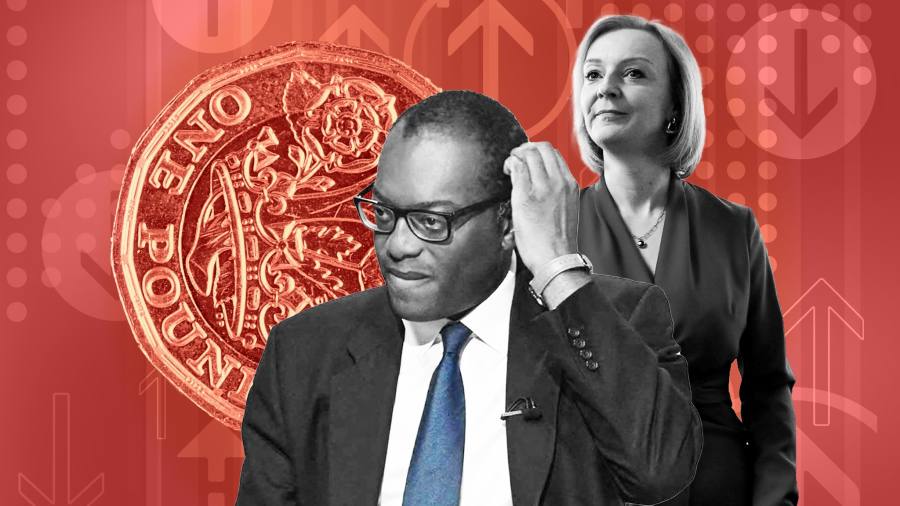Benjamin Franklin once said, “If you fail to plan, you are planning to fail.” But as you chart your financial course, what steps should you take to help you keep moving forward to where you want to go?
Consider these suggestions:
- Establish and quantify your goals. Throughout your life, you’ll have short-term goals, such as an overseas vacation or a home renovation, and long-term goals, the most important of which may be a comfortable retirement. You’ll want to identify all your goals and put a “price tag” on them. Of course, it’s not always possible to know exactly how much it will cost to achieve each goal, but you can develop reasonably good estimates, revising them as needed.
- Create an investment strategy to achieve your goals. Once you know how much your goals will cost, you can create the appropriate savings and investment strategies to potentially help you reach the needed amounts. For your retirement goal, you will likely need to contribute regularly to your IRA and 401(k) or other employer-sponsored retirement plan. But for shorter-term goals, you may need to explore other types of investments. For all your investment moves, though, you’ll need to consider your risk tolerance. You won’t want your portfolio to have such a high-risk level that you’re constantly uncomfortable with the inevitable fluctuations of the financial markets. On the other hand, you won’t want to invest so conservatively that you jeopardize your chances of achieving the growth you need to reach your goals.
- Control your debts. We live in an expensive world, so it’s not easy to live debt-free. And some debts, such as your mortgage, obviously have value. But if you can control other debts, especially those that carry high interest rates, you can possibly free up money you can use to boost your savings and investments.
- Prepare for obstacles. No matter how carefully you follow the strategies you’ve created to achieve your goals, you will, sooner or later, run into obstacles, or at least temporary challenges. What if you incur a large, unexpected expense, such as the sudden need for a new car or a major home repair? If you aren’t prepared for these costs, you might be forced to dip into your long-term investments – and every time you do that, you might slow your progress toward achieving your goals. To help prevent this, you should build an emergency fund containing several months’ worth of living expenses.
- Review your strategy. When you first created your financial strategy, you might have planned to retire at a certain age. But what if you eventually decide to retire earlier or later? Such a choice can have a big impact on what you need from your investment portfolio — and when. And your circumstances may change in other ways, too. That’s why it’s a good idea to review your strategy periodically to make sure it still aligns with your up-to-date objectives.
None of us can guarantee that our carefully laid plans will always yield the results we want. But by taking the right steps at the right times, you can greatly improve your chances.
Click here to learn more and contact local Edward Jones financial advisor Jacob Seidel.
–
This article was written by Edward Jones for use by your local Edward Jones Financial Advisor.
Edward Jones, Member SIPC
$850,000
- Bedrooms: 5
- Bathrooms: 3
- Square Feet: 3648 ft2
RE/MAX Lake of the Ozarks
+1(573)302-2355
Currently Open
$400,000
- Bedrooms: 3
- Bathrooms: 2
- Square Feet: 1200 ft2
Missouri
+1(573)216-4350
Currently Open
$649,900
- Bedrooms: 4
- Bathrooms: 3
- Square Feet: 3012 ft2
RE/MAX Lake of the Ozarks
+1(573)302-2355
Currently Open
- Bedrooms: 4
- Bathrooms: 3
- Square Feet: 5400 ft2
$560,000
- Bedrooms: 4
- Bathrooms: 3
- Square Feet: 2296 ft2
RE/MAX Lake of the Ozarks
+1(573)302-2390
Currently Open
$339,000
- Bedrooms: 2
- Bathrooms: 2.5
- Square Feet: 2016 ft2
$279,900
- Bedrooms: 3
- Bathrooms: 2
- Square Feet: 1200 ft2
RE/MAX Lake of the Ozarks
+1(573)302-2355
Currently Open
$3,499,000
- Bedrooms: 4
- Bathrooms: 6
- Square Feet: 6123 ft2
RE/MAX Lake Of The Ozarks
$9,999,999
- Bedrooms: 7
- Bathrooms: 12
- Square Feet: 12800 ft2
$550,000
- Bedrooms: 6
- Bathrooms: 6
- Square Feet: 2320 ft2
KW Four Seasons Realty
+1(573)569-8792
Currently Open
$389,500
- Bedrooms: 4
- Bathrooms: 3
- Square Feet: 1900 ft2
RE/MAX Lake of the Ozarks
+1(573)302-2355
Currently Open
$1,100,000
- Bedrooms: 4
- Bathrooms: 3
- Square Feet: 3000 ft2
$950,000
- Bedrooms: 4
- Bathrooms: 4
- Square Feet: 2876 ft2
Berkshire Hathaway HomeServices – Schrimpf Real Estate Group
+1(573)365-7333
Currently Open
$1,454,900
- Bedrooms: 5
- Bathrooms: 4
- Square Feet: 3555 ft2
RE/MAX Lake of the Ozarks
$399,999
- Bedrooms: 2
- Bathrooms: 2
- Square Feet: 1216 ft2
$950,000
- Bedrooms: 5
- Bathrooms: 6
- Square Feet: 3827 ft2
Keller Williams Lake of the Ozarks Realty
$515,000
- Bedrooms: 4
- Bathrooms: 5
- Square Feet: 3024 ft2
Keller Williams Lake of the Ozarks Realty
$159,900
- Bedrooms: 1
- Bathrooms: 1
- Square Feet: 550 ft2
Keller Williams Lake of the Ozarks Realty
+1(573)348-9898
Currently Open
$390,000
- Bedrooms: 3
- Bathrooms: 3
- Square Feet: 2000 ft2
Smarter Move Real Estate Group
+1(573)544-3587
Currently Open
$475,000
- Bedrooms: 5
- Bathrooms: 3
- Square Feet: 3454 ft2
Smarter Move Real Estate Group
+1(573)544-3587
Currently Open
$569,500
- Bedrooms: 5
- Bathrooms: 3
- Square Feet: 2096 ft2
$525,000
- Bedrooms: 3
- Bathrooms: 3
- Square Feet: 2196 ft2
Smarter Move Real Estate Group
+1(573)544-3587
Currently Open
$1,750,000
- Bedrooms: 3
- Bathrooms: 5
- Square Feet: 4780 ft2
$3,000,000
Keller Williams Lake of the Ozarks Realty
$750,000
Keller Williams Lake of the Ozarks Realty
$324,000
- Bedrooms: 3
- Bathrooms: 2
- Square Feet: 1318 ft2
RE/MAX Lake of the Ozarks
+1(573)302-2355
Currently Open
$449,900
- Bedrooms: 3
- Bathrooms: 4
- Square Feet: 3410 ft2
$315,000
- Bedrooms: 3
- Bathrooms: 3
- Square Feet: 2059 ft2
$299,900
- Bedrooms: 2
- Bathrooms: 2
- Square Feet: 1125 ft2
RE/MAX Lake of the Ozarks
+1(573)302-2355
Currently Open
$695,000
- Bedrooms: 3
- Bathrooms: 3
- Square Feet: 2915 ft2
RE/MAX Lake Of The Ozarks
$1,250,000
KW Four Seasons Realty
+1(573)569-8792
Currently Open
$1,900,000
- Bedrooms: 5
- Bathrooms: 7
- Square Feet: 5212 ft2
Berkshire Hathaway HomeServices – Schrimpf Real Estate Group
+1(573)365-7333
Currently Open
$1,150,000
- Bedrooms: 4
- Bathrooms: 4
- Square Feet: 3300 ft2
Keller Williams Lake of the Ozarks Realty
$299,999
- Bedrooms: 4
- Bathrooms: 3
- Square Feet: 2134 ft2
$3,250,000
Smarter Move Real Estate Group
+1(573)544-3587
Currently Open
$525,000
- Bedrooms: 5
- Bathrooms: 3
- Square Feet: 4100 ft2
RE/MAX Lake of the Ozarks
$1,250,000
- Bedrooms: 4
- Bathrooms: 4
- Square Feet: 3000 ft2
Smarter Move Real Estate Group
+1(573)544-3587
Currently Open
$2,690,000
- Bedrooms: 6
- Bathrooms: 6
- Square Feet: 5174 ft2
Keller Williams Lake of the Ozarks Realty
$4,200,000
- Bedrooms: 7
- Bathrooms: 6
- Square Feet: 8728 ft2
Berkshire Hathaway HomeServices – Schrimpf Real Estate Group
+1(573)365-7333
Currently Open
$310,000
- Bedrooms: 2
- Bathrooms: 2
- Square Feet: 950 ft2
RE/MAX Lake of the Ozarks
+1(573)302-2355
Currently Open
$629,950
- Bedrooms: 3
- Bathrooms: 3
- Square Feet: 2316 ft2
$109,900
- Condition: Used
- Mileage: 7
$179,990
- Condition: Used
- Mileage: 37
$126,770
- Condition: Used
- Mileage: 5
- Condition: New
- Mileage: 400
$144,999
- Condition: Used
- Mileage: 2



